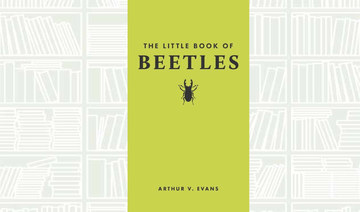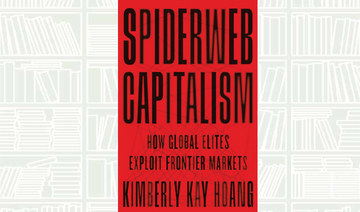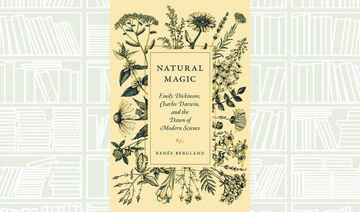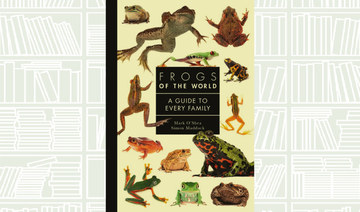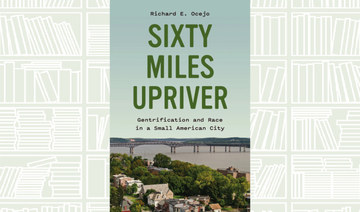NEW YORK: Salman Rushdie has a memoir coming out about the horrifying attack that left him blind in his right eye and with a damaged left hand.
“Knife: Meditations After an Attempted Murder” will be published April 16.
“This was a necessary book for me to write: a way to take charge of what happened, and to answer violence with art,” Rushdie said in a statement released Wednesday by Penguin Random House.
Last August, Rushdie was stabbed repeatedly in the neck and abdomen by a man who rushed the stage as the author was about to give a lecture in western New York. The attacker, Hadi Matar, has pleaded not guilty to charges of assault and attempted murder.
For some time after Iran’s Grand Ayatollah Ruhollah Khomeini issued a 1989 fatwa calling for Rushdie’s death over alleged blasphemy in his novel “The Satanic Verses,” the writer lived in isolation and with round-the-clock security. But for years since, he had moved about with few restrictions, until the stabbing at the Chautauqua Institution.
The 256-page “Knife” will be published in the US by Random House, the Penguin Random House imprint that earlier this year released his novel “Victory City,” completed before the attack. His other works include the Booker Prize-winning “Midnight’s Children,” “Shame” and “The Moor’s Last Sigh.” Rushdie is also a prominent advocate for free expression and a former president of PEN America.
“’Knife’ is a searing book, and a reminder of the power of words to make sense of the unthinkable,” Penguin Random House CEO Nihar Malaviya said in a statement. “We are honored to publish it, and amazed at Salman’s determination to tell his story, and to return to the work he loves.”
Rushdie, 76, did speak with The New Yorker about his ordeal, telling interviewer David Remnick for a February issue that he had worked hard to avoid “recrimination and bitterness” and was determined to “look forward and not backwards.”
He had also said that he was struggling to write fiction, as he did in the years immediately following the fatwa, and that he might instead write a memoir. Rushdie wrote at length, and in the third person, about the fatwa in his 2012 memoir “Joseph Anton.”
“This doesn’t feel third-person-ish to me,” Rushdie said of the 2022 attack in the magazine interview. “I think when somebody sticks a knife into you, that’s a first-person story. That’s an ‘I’ story.”
Salman Rushdie was stabbed on stage last year. He’s releasing a memoir about the attack
https://arab.news/wf944
Salman Rushdie was stabbed on stage last year. He’s releasing a memoir about the attack

- “Knife: Meditations After an Attempted Murder” will be published April 16
- The attacker, Hadi Matar, has pleaded not guilty to charges of assault and attempted murder
What We Are Reading Today: The Mystery of the Invisible Hand
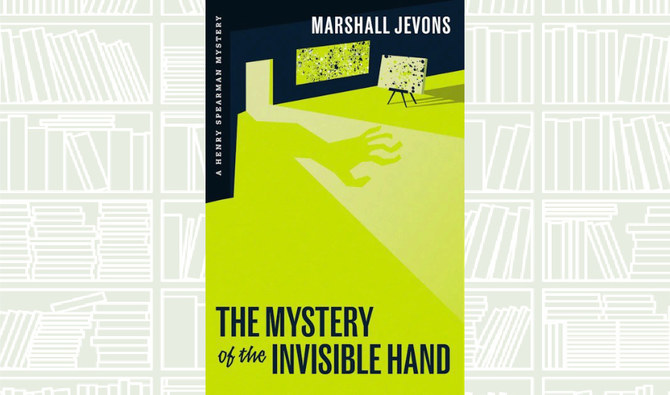
Author: Marshall Jevons
In “The Mystery of the Invisible Hand,” Henry Spearman, an economics professor with a knack for solving crimes, is pulled into a case that mixes campus intrigue, stolen art, and murder.
Arriving at San Antonio’s Monte Vista University to teach a course on art and economics, he is confronted with a puzzling art theft and the suspicious suicide of the school’s artist-in-residence.
From Texas to New York, Spearman traces the connections between economics and the art world, finding his clues in monopolies, auction theory, and Adam Smith.
What We Are Reading Today: ‘The Little Book of Beetles’
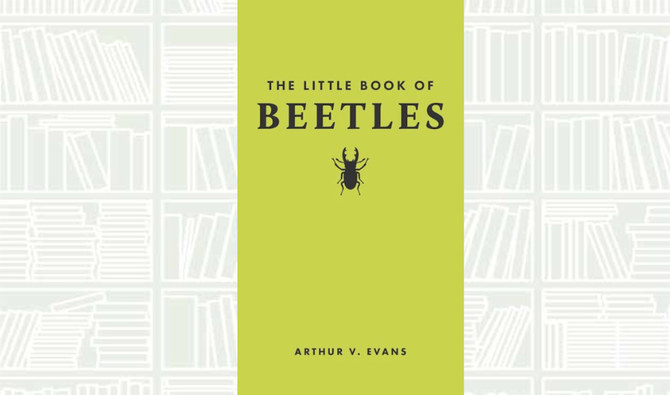
Author: ARTHUR V. EVANS
Packed with surprising facts, this delightful and gorgeously designed book will beguile any nature lover. Expertly written and beautifully illustrated throughout with color photographs and original color artwork, “The Little Book of Beetles” is an accessible and enjoyable mini-reference about the world’s beetles, with examples drawn from across the globe.
It fits an astonishing amount of information in a small package, covering a wide range of topics — from anatomy, diversity, and reproduction to habitat and conservation.
What We Are Reading Today: Spiderweb Capitalism: How Global Elites Exploit Frontier Markets
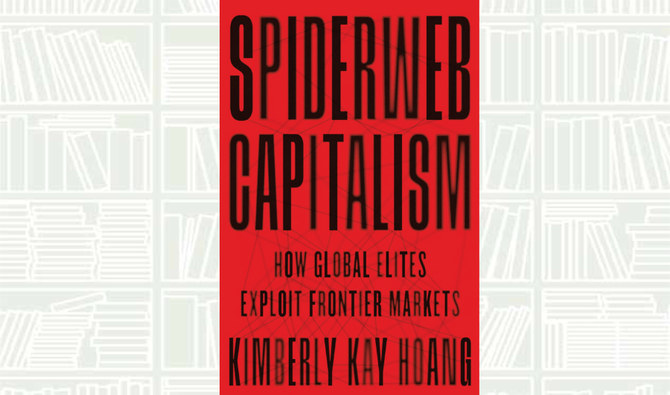
- Hoang reveals the strategies behind spiderweb capitalism and examines the moral dilemmas of making money in legal, financial, and political gray zones
Author: Kimberly Kay Hoang
In 2015, the anonymous leak of the Panama Papers brought to light millions of financial and legal documents exposing how the superrich hide their money using complex webs of offshore vehicles. Spiderweb Capitalism takes you inside this shadow economy, uncovering the mechanics behind the invisible, mundane networks of lawyers, accountants, company secretaries, and fixers who facilitate the illicit movement of wealth across borders and around the globe.
Kimberly Kay Hoang traveled more than 350,000 miles and conducted hundreds of in-depth interviews with private wealth managers, fund managers, entrepreneurs, C-suite executives, bankers, auditors, and other financial professionals. She traces the flow of capital from offshore funds in places like the Cayman Islands, Samoa, and Panama to special-purpose vehicles and holding companies in Singapore and Hong Kong, and how it finds its way into risky markets onshore in Vietnam and Myanmar.
Hoang reveals the strategies behind spiderweb capitalism and examines the moral dilemmas of making money in legal, financial, and political gray zones.
Dazzlingly written, Spiderweb Capitalism sheds critical light on how global elites capitalize on risky frontier markets, and deepens our understanding of the paradoxical ways in which global economic growth is sustained through states where the line separating the legal from the corrupt is not always clear.
What We’re Reading Today: Work Life Well-lived
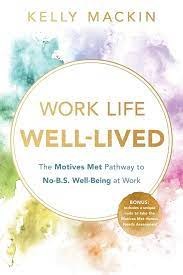
Author: Kelly Mackin
This book will disrupt how you think about creating your best work life and workplace and give you a road map to get you there, says a review published on goodreads.com.
Through years of research and truth-finding, Kelly Mackin and her company, Motives Met, have discovered a completely new mindset and approach around what well-being at work is all about, how to get there, and why it’s so important that we do get there.
This book is a personal guide and a call to action for a shift in our approach to work.
What We Are Reading Today: Natural Magic
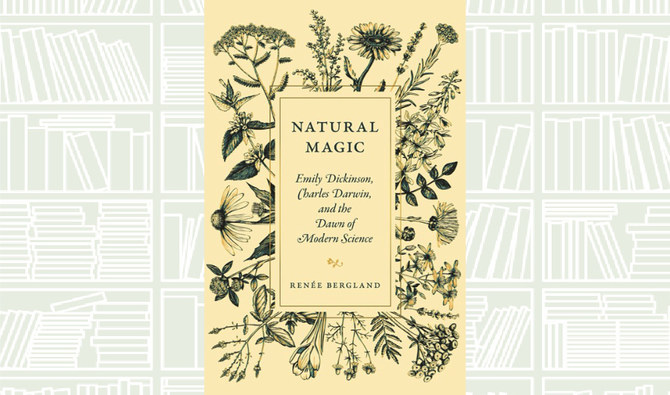
Author: Renee Bergland
Emily Dickinson and Charles Darwin were born at a time when the science of studying the natural world was known as natural philosophy, a pastime for poets, priests, and schoolgirls.
The world began to change in the 1830s, while Darwin was exploring the Pacific aboard the Beagle and Dickinson was a student in Amherst, Massachusetts.
“Natural Magic” intertwines the stories of these two luminary 19th-century minds whose thought and writings captured the awesome possibilities of the new sciences and at the same time strove to preserve the magic of nature.





